Mathematics is the engine of love, justice and progress. That is the definition given to the science of structures, sequences and relations by those who pursue it professionally.
Mediamax and Foundation for Armenian Science and Technology (FAST) jointly present the MathArt project that tells the stories of talented mathematicians from Armenia and their work. Mathematics holds key importance in the modern world and we hope that MathArt project will inspire young Armenians to choose a career in mathematics.
***
Professor of Arizona State University Victor Pambuccian was born in a Western Armenian family, who emigrated to Romania. He graduated from Faculty of Mathematics of the University of Bucharest and received a PHD in Mathematics from the University of Michigan.
In addition to mathematics, Victor has yet another passion, which is the translation of poetry. He has published translations in 5 languages (Romanian, English, German, French, Armenian)
“I started by solving, as a 13-year-old, problems from the Gazeta Matematica, a school mathematics journal founded in 1895, with problems to be solved by students from the 5th to the 12th grade.
I got steadily better at solving problems, and found mathematics to be as remote from the life of human societies as possible, of offering a refuge from a world I experienced as ugly and perverted, and to which I did not want to contribute.
My research has been, from the very beginning, connected to the axiomatic foundations of geometry. My plan is to write a comprehensive survey of the history of the axiomatic foundation of geometry from 1882 to the present. One of the kinds of questions I ask is one of reverse geometry:
“What assumptions are needed in order to be able to prove a certain geometric theorem? Regular geometry starts with an axiom system and proves theorems. Reverse geometry starts with a theorem and ask for a minimal axiom system in which that theorem can be proved,” says Victor Pambuccian.
A mathematician’s way of thinking
Despite significant differences in the way various mathematicians approach it, the main difference between mathematics and other human endeavors is that the statements of the former have a certain definitiveness and certainty that sets them apart. Almost any utterance in non-mathematical fields will be challenged and there will be attempts to demolish it, new theories and fashions will spring up and explain those same phenomena in entirely different ways. While most other intellectually-minded people try to convince other people of the validity of their claims, mathematicians speak with the Great Anonymous, and persuading someone of the truth of what you have come up with is, in essence, irrelevant. A mathematician’s audience is the Absolute.
Mathematical thinking varies by sub-discipline, but it all requires a lot of creativity, a keen sense of observation, imagination, and the ability to separate the essential from the contingent.
Mathematics and cultural identity
I am not so sure whether life needs all of mathematics. Plenty of mathematics, such as large cardinals or even the real numbers, certainly are not a faithful representation of anything concrete, to say nothing of biology. I do not think it is that important to learn mathematics, if by mathematics we understand the results of mathematics. I think the axiomatic-deductive method, which lies at the heart of mathematics, is worth learning, as it provides one of the privileged gates of access to the ancient Greek world.
We are Greeks only to the extent that we understand the axiomatic-deductive method and thus are able of exact thinking and we understand the historical dimension of our universe of discourse. These two were the distinctive features of their culture and no one else ever came up with these eccentric ideas, that we can organize our entire knowledge of a certain realm such that only a few sentences need to be taken for granted, and all the rest can be deduced, and that the things that happened in the inexorable passage of time, for the most part things one would rather want to forget, such as wars and plagues, are worthy of note and of being remembered by future generations.
Why is it desirable to be descendants of the Greeks and not simply barbarians? This is a question of taste, and while I can list many of the advantages that I see in following reason and being aware of the origin and path by which things have arrived in the present, as well as of the achievements of the past, it all boils down to the question whether “truth will set you free” or “ignorance is bliss.”
The skeptics considered the latter to be the case. As a teacher, I cannot believe in the bliss of ignorance, but that is a matter of taste or of professional bias in my case.
Armenia chose in the distant past to become Greek, its culture being influenced by the two poles of Athens and Jerusalem. This choice, of being Greek rather than barbarian, is not a definitive one. It has to be fought over every day, for the lure of a barbarian lifestyle is always there, always calling. After all, Greek style rationality offers no solace at all, no certainties (its undisputed hero, Socrates, knew only what he did not know), nor is the thought coming from Jerusalem food for the ego, for its craving for self-importance.
Both poles were abandoned during Soviet Armenia times, when Aristotelian logic was replaced by “dialectical logic” and Christianity, a religion of love, by a Christian heresy (Arnold Toynbee's characterization of communism), a religion of envy and hatred.
Teaching the axiomatic-deductive method is one of many educational tools required if one thinks that it is important to continue with the choice made by our intellectual class in the very distant past, the preference for critical thinking rather than the history- and rationality-free barbarian approach to phenomena.
So, as far as I can see, learning mathematics, unless one ends up being a mathematician, which is the case for something like 1 in 2000, is important only for reasons of cultural identity, as the passport to the wonderful world of the ancient Greeks. It is not something one will likely end up using in real life. At least I have never used any of the results of the mathematics I ever learned for anything outside it.
Mathematics and advantages of Armenia
The advantage Armenia has over most countries is that it still teaches serious mathematics in school, it teaches proof-based mathematics. This is not the case in any Western European country or the USA.
While school mathematics gives a clear advantage to the Armenian student, once that student becomes an undergraduate the conditions of study are way below what that student's counterpart in the USA comes to expect.
The library of YSU, the flagship university of Armenia, for one thing, contains hardly anything visible on the shelves, one has to consult the catalogue, although one doesn’t really know what to look for. Books cannot be checked out, unless they are textbooks of which the library has dozens.
Compare and contrast that with a library of a US university, where all the mathematics books, many thousands of them, are freely accessible to anyone (in most cases, even members of the public at large).
The number and variety of classes offered is also much more restricted than those of the US counterpart. In Armenia, there tends to be less motivation for what is being taught and for why it is being taught that way. Couple that with the fact that there are no real jobs for mathematicians in Armenia, and you have a recipe for disaster. For most students, studying mathematics becomes the hurdle one needs to overcome to obtain a diploma, so that one can get an IT job. Under these circumstances, there is little love for mathematics itself, it all becomes a means to a certain end. Pure mathematics is entirely useless, so someone interested in it usually pursues it due to some strong inner need to do so, due to an overarching passion. Questions regarding its usefulness that appear early on have a tendency to kill that passion. To end up with a job in mathematics, a fresh high school graduate has to allow for 8 to 10 years of study, the graduate part of which will have to happen abroad, for that's where the academic jobs are. It is an ultramarathon for the diehard.
I do not see the country ready to address the problem. I have followed this problem rather closely for the past 20 years, and there have been no positive changes in the direction of creating academic jobs in mathematics that pay living wages.
Mathematics, being perfectly useless economically (there is no market value that a theorem has, so there is no demand for theorems), is a luxury that only rich countries can afford. So, I do not see a change in this situation in the near future.
Emil Artin Junior Prize
When I first visited Armenia in 1999, I noticed that, while young mathematicians were talented, they tended to look for jobs that were paying living wages and dropped out of mathematics. I thought this was unfair, for in the US we try to encourage youths with less talent or accomplishments to pursue careers in mathematics. In Armenia, the universities are served bright youths by the secondary school system, which are then discouraged from pursuing mathematics. I discussed these matters with Yuri Movsisyan, who was my host during that visit, sponsored by the AGBU, and we came to the conclusion that those who, despite all the hardships, continue to do mathematics, and publish a paper in a serious peer-reviewed Western journal in a Western language deserve to be appreciated with the Emil Artin Junior Prize in Mathematics.
The name was chosen by me, as I believed and still believe that Emil Artin was the greatest Armenian mathematician in history.
The question whether all fields of mathematics should be covered arose at that time. We decided to limit the fields to algebra, geometry, topology, and number theory, the fields to which Emil Artin made major contributions. The idea was to exclude analysis, for in Soviet Armenia analysis was the preeminent field of research, eclipsing and hindering the development of any other direction. This was not a healthy development, for young people may have different interests and talents, and there should be an as wide as possible horizon of choices. Its jury consists of two “spyurkahay”, me and Ara Basmajian, both living in the US, and of one mathematician from Armenia, Yuri Movsisyan.
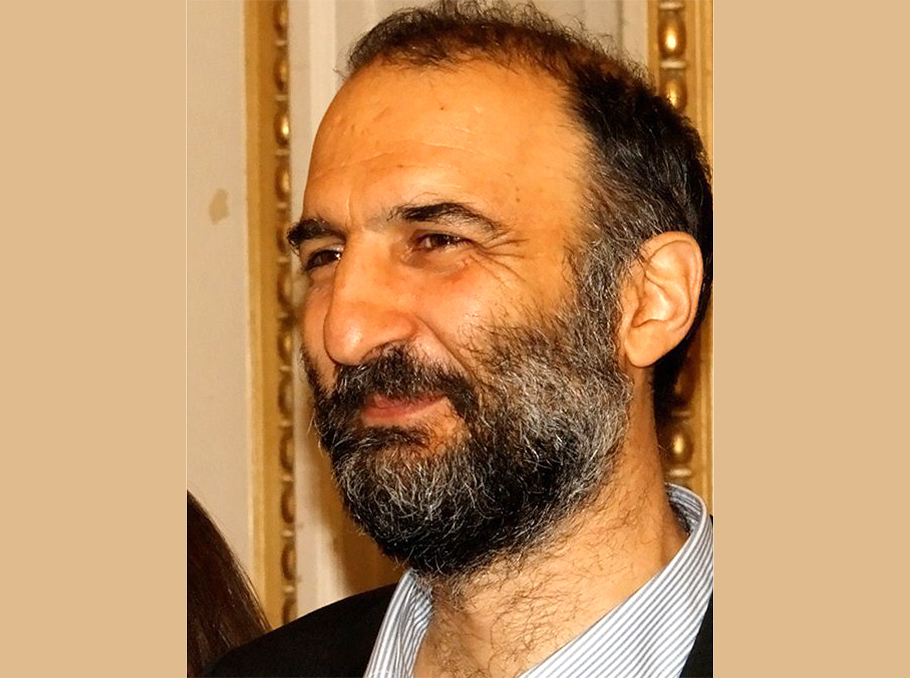 Viktor Pambuccian
Viktor Pambuccian Photo: Ararat Online
Since the awarding of the prize is decided unanimously, there can be no influence from institutions of persons from Armenia. In fact, both me and Ara, and sometimes Yuri as well, had never met the young mathematicians that end up being awarded the prize. The recipient must be 35 or younger, and must have been a student in Armenia.There is no application procedure, so the awardees have no idea that they will one day receive an e-mail letting them know that they were awarded this prize.
While no one will start doing research in mathematics to get this prize, as it pays less than minimum wage (it started at $500 in 2001 and was increased to $1000 in 2008), it is a way for us, more established Armenian mathematicians, to show our appreciation for the younger generation’s amazing successes, to let them know that they are not alone, that someone out there appreciates the work they have done. The recipients represent, together with the classical music interpreters from Armenia, the highest cultural achievers to have come out of the Republic of Armenia, cultural ambassadors of the highest class.
Life in Armenia
In the hope of having students like those who ended up as Emil Artin prize recipients, I have applied for a Fulbright Research and Teaching Scholarship in both 2013 and 2017. In 2013, I ended up an alternate, and, since no one declined the offer, did not get it. In 2017, I got it, for an 8 months stay, to teach and do research at YSU. So I arrived on August 31, 2018 and left on May 1, 2019. I taught the axiomatic foundation of geometry, a subject that had never been taught anywhere in Armenia, and had four brilliant students in my class. Two of them solved an open problem that I had suggested, and the three of us wrote a paper on that subject, which has already appeared in the Journal of Geometry.
I had assumed that more students would be interested in learning something new, but this was not the case for reasons that I do not quite understand, but that seems to be connected with a rather formal approach to education. My class will not show up on the transcripts of those who attended, nor will their grades show up anywhere.
A course has to be entered into the system two years prior to its being offered, so it can count officially and show up on a transcript. This means that no course taught by a Fulbright Scholar can show up on a transcript. Since the external aspects of education seem to matter much more than the internal ones, in the sense that diplomas, academic degrees, membership in academies (all without intrinsic significance) matter much more than what one actually knows or has done and how one feels about what one knows and what one does not know, the interest in a course that would not count in the world of externalities had to be rather subdued.
During my stay I also collaborated with Yuri Movsisyan, and we wrote our first paper together, which will be submitted soon.
Mathematics – attractive for students
I think that there should be more of an emphasis on the fact that mathematics is a human creation, and thus all the things in it that look strange, alien, and bewildering, make perfect sense if one takes the time to explain the motivations of those who invented the notions, axioms, definitions, theorems.
Else, it is easy to get lost in an ocean of meaningless symbols and computations signifying nothing. The question of the deeper meaning and beauty of it all should take center stage in the teaching of mathematics. Yet I am not sure if one ought to attract anyone to mathematics. One ought to be exposed to it, understand what its aims are, but whether one wants to pursue it is another question. Do we want to attract more people to music theory, to understand the intricacies of counterpoint and of dodecaphony?
Mathematician and translations of poetry
I have led a rather uneventful life, in the sense that I have done the same thing ever since I was 14, namely read poetry and prose and do mathematics. In due time I wrote a few poems myself in German and much later in English. Choosing to do mathematics full time rather than poetry did not mean a betrayal of poetry, for I consider the kind of mathematics I do to be pure poetry (pure because outside of natural languages; poetry because it creates worlds in a very concise manner, just like poetry is supposed to do (the German Dichtung comes from dicht, dense)).
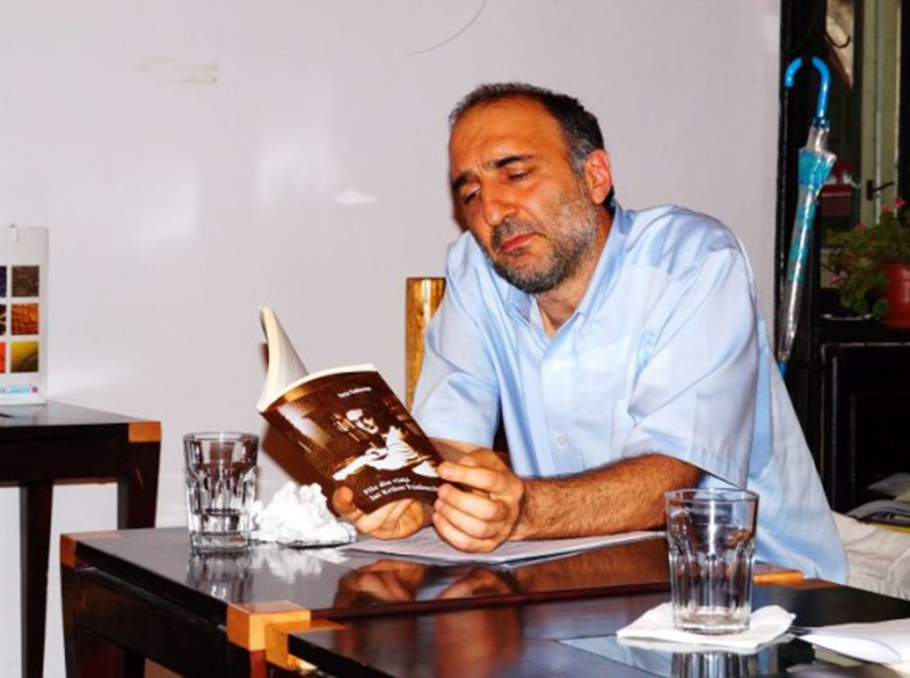 Viktor Pambuccian
Viktor Pambuccian Photo: Ararat Online
I have translated, over the past 20 years, from Western Armenian to German (Vahan Tekeyan, Ruben Sevak, Daniel Varujan), from Rumanian, German, and French to English, and from English to German. I have translated only the poetry I like and that I find translatable, mostly that of the Rumanian avant-garde (Tristan Tzara, M. Blecher, B. Fundoianu, Ilarie Voronca, Paul Celan, Gellu Naum, Geo Dumitrescu, George Almosnino, Nora Iuga, Vintilă Ivănceanu), that of Vahé Godel, and that of German-language poets from Rumania (Richard Wagner, Elisabeth Axmann, Rolf Bossert).
The reason I translate is that I find that contemporary American poets would greatly benefit from an encounter with these largely unknown poets of the Rumanian avant-garde.
FAST Foundation is the general partner of the project 
Marie Taryan
















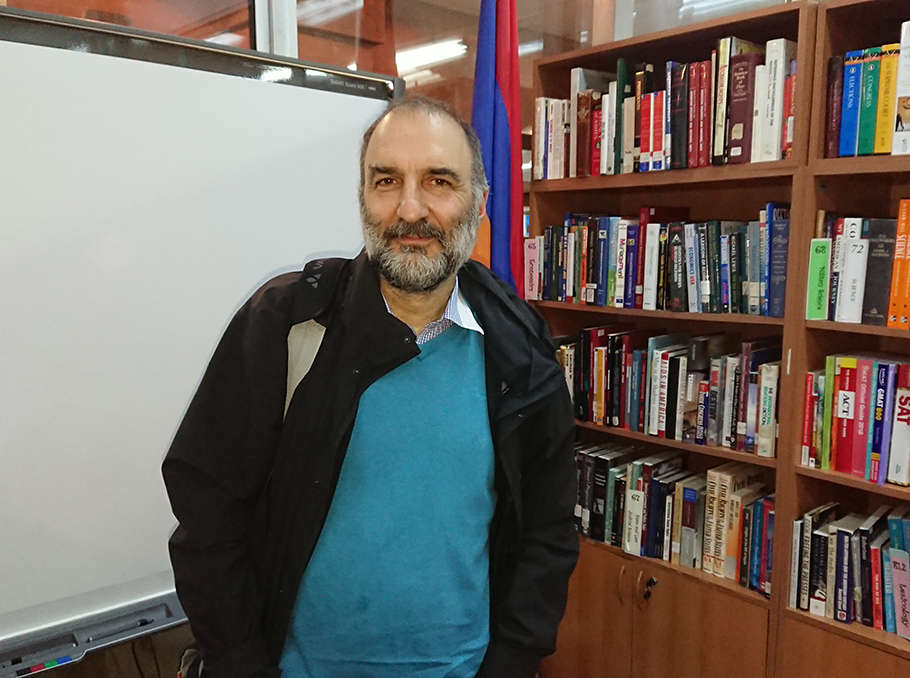
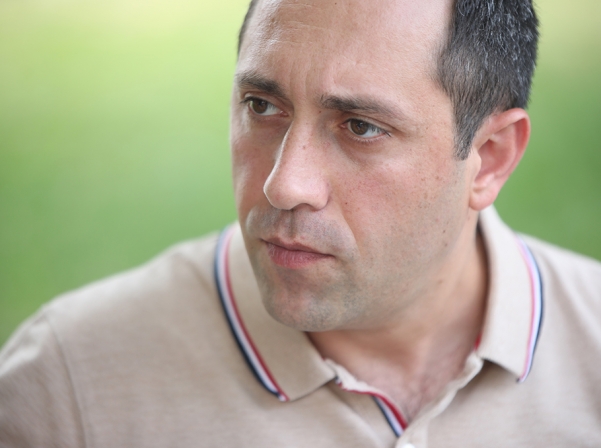
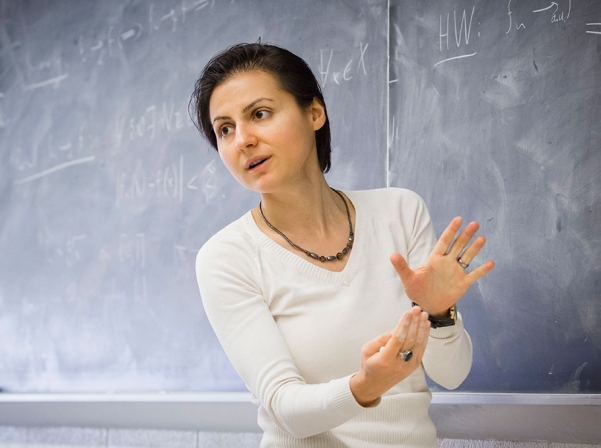
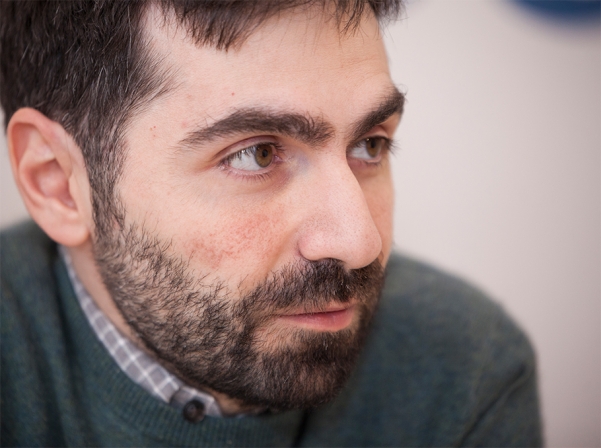
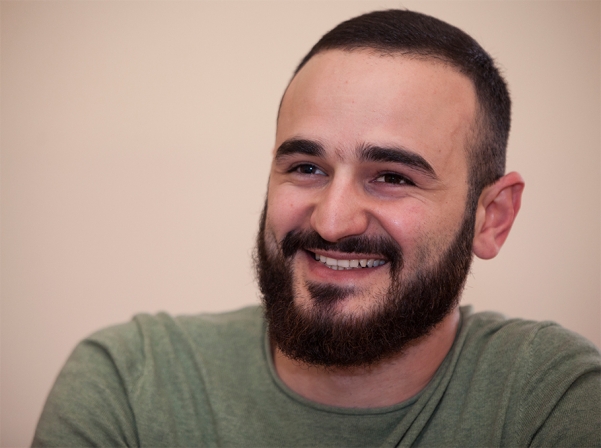






Comments
Dear visitors, You can place your opinion on the material using your Facebook account. Please, be polite and follow our simple rules: you are not allowed to make off - topic comments, place advertisements, use abusive and filthy language. The editorial staff reserves the right to moderate and delete comments in case of breach of the rules.